Medical students of Taskforce QRS teach Dutch Members of Parliament to resuscitate
On 22 February, 15 medical students of Stichting Taskforce QRS Netherlands gave a major resuscitation training to pupils of the Den Hulster College (Venlo) and Members of the Dutch Parliament in the hall of the Parliament building in The Hague. The occasion for this event was the instalment of a public Automated External Defibrillator (AED) on the front of the Parliament building. An AED is a portable device that can restore the heart rhythm after a cardiac arrest. Taskforce QRS is an initiative of medical students from Maastricht University. Since 2006, Taskforce QRS Maastricht has been training medical students to teach resuscitation. Each year Taskforce provides resuscitation training to around 10,000 pupils in secondary education. The Maastricht initiative was followed by the medical faculties of Utrecht, Leiden, Nijmegen and Groningen. This nationwide Taskforce QRS Netherlands works closely together with the Hartstichting and the Nederlandse Reanimatieraad.
Public support
For years already, Taskforce QRS has been trying to get public support for standard introduction of resuscitation training in the secondary education curriculum. For that purpose, the national branch of Taskforce QRS has been in contact with various Members of Parliament in order to motivate politicians to take action. Earlier, Taskforce QRS gave resuscitation training to Minister Schippers. The training of 22 February was given by fifteen medical students of Taskforce QRS from all participating universities. The initiative for the meeting was taken by Member of Parliament Leendert de Lange (VVD). Khadija Arib, president of the House of Parliament, opened the meeting.
Speakers
During the meeting Member of Parliament Leendert de Lange spoke about civil assistance and the importance of Members of Parliament setting an example. Another speaker was the survivor of a cardiac arrest thanks to resuscitation. At the end of the meeting the students gave a big resuscitation demo, followed by resuscitation training.
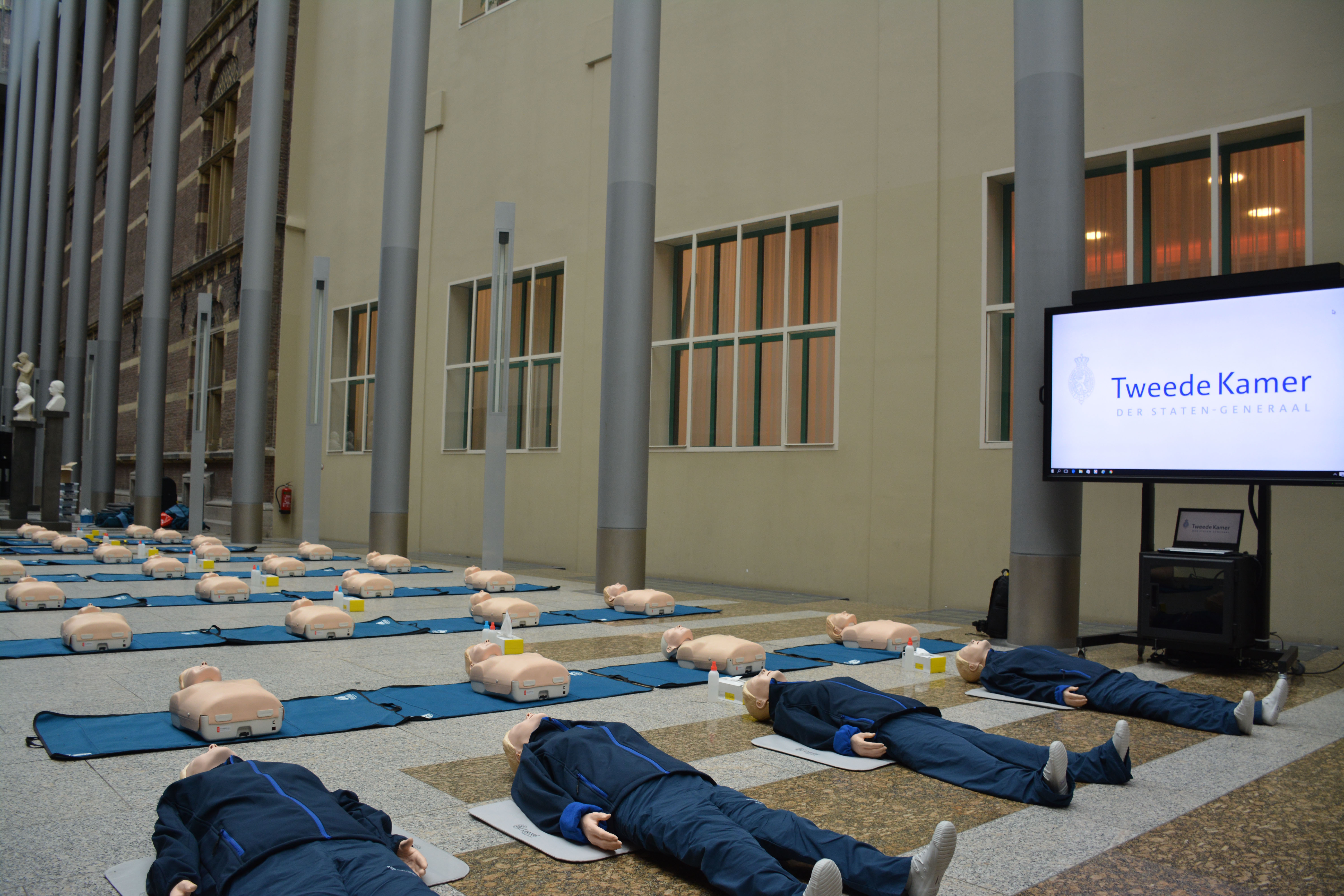
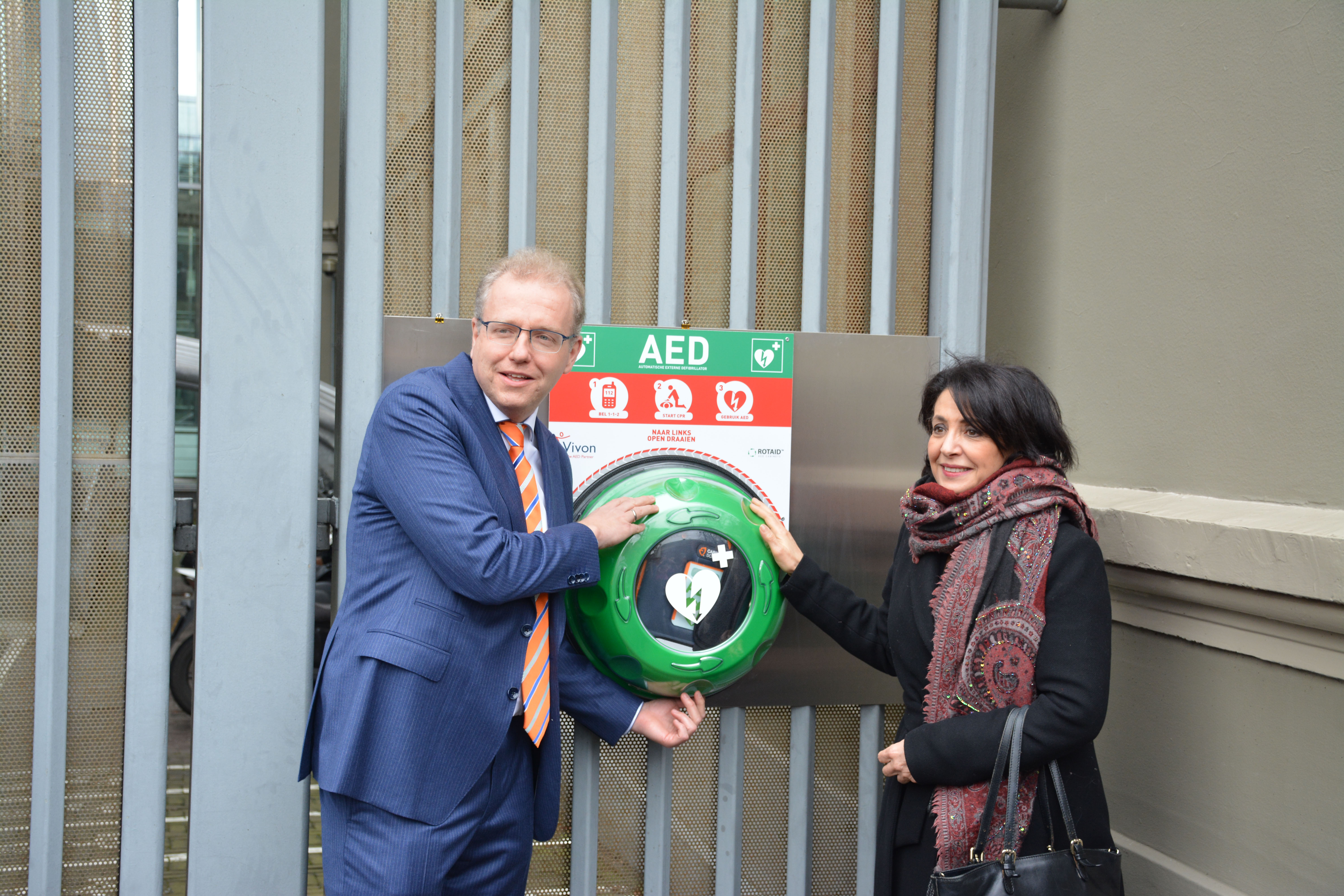
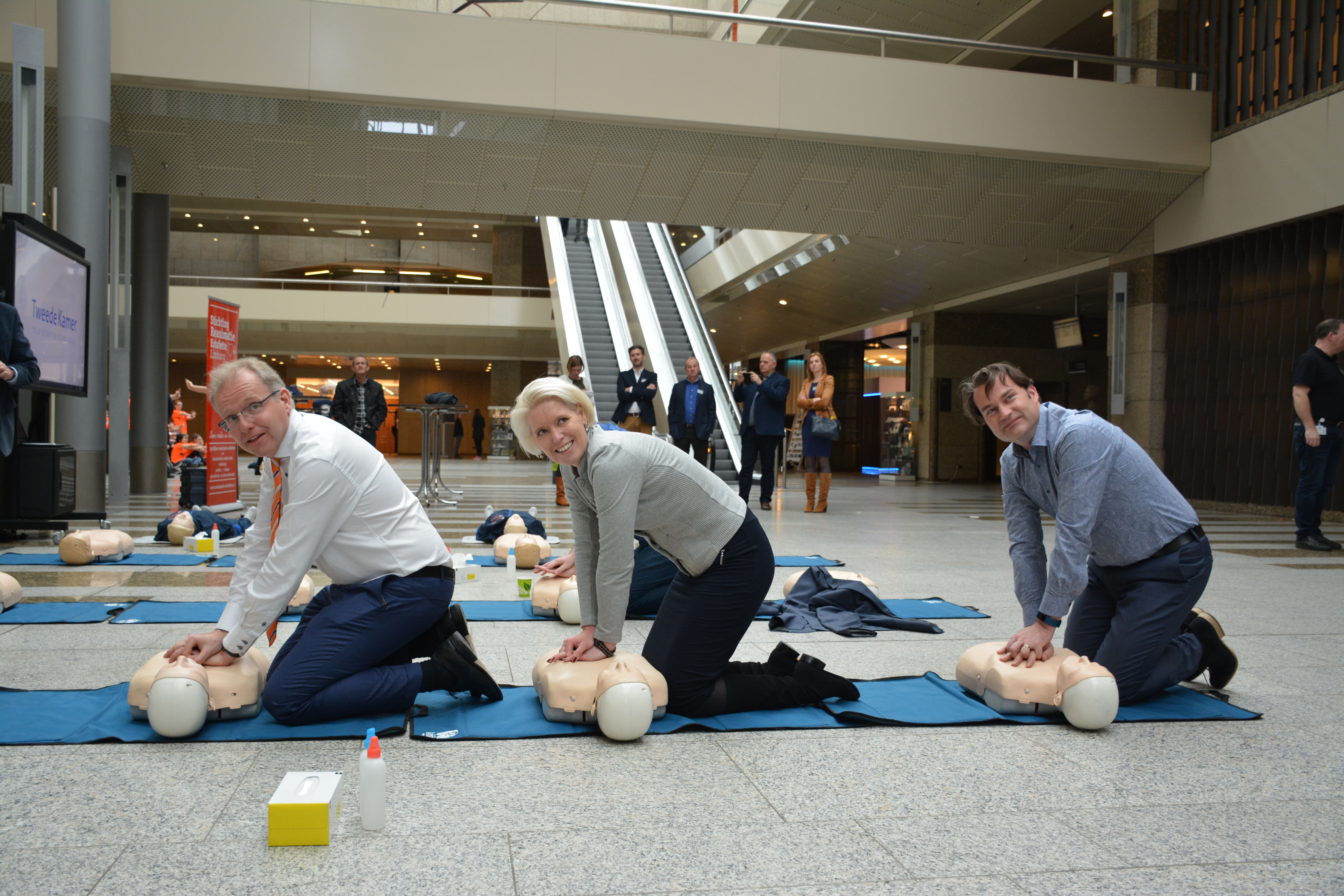
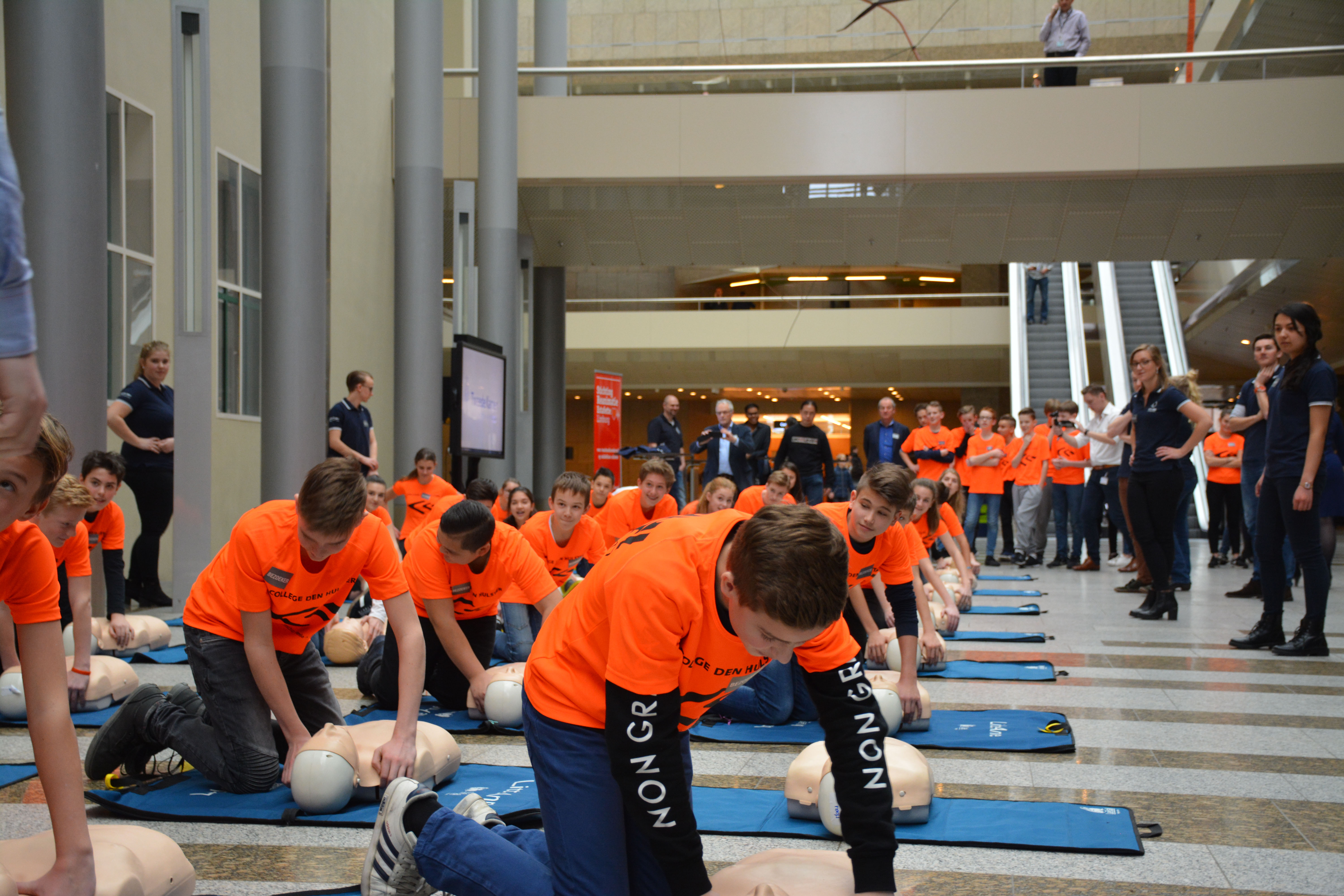
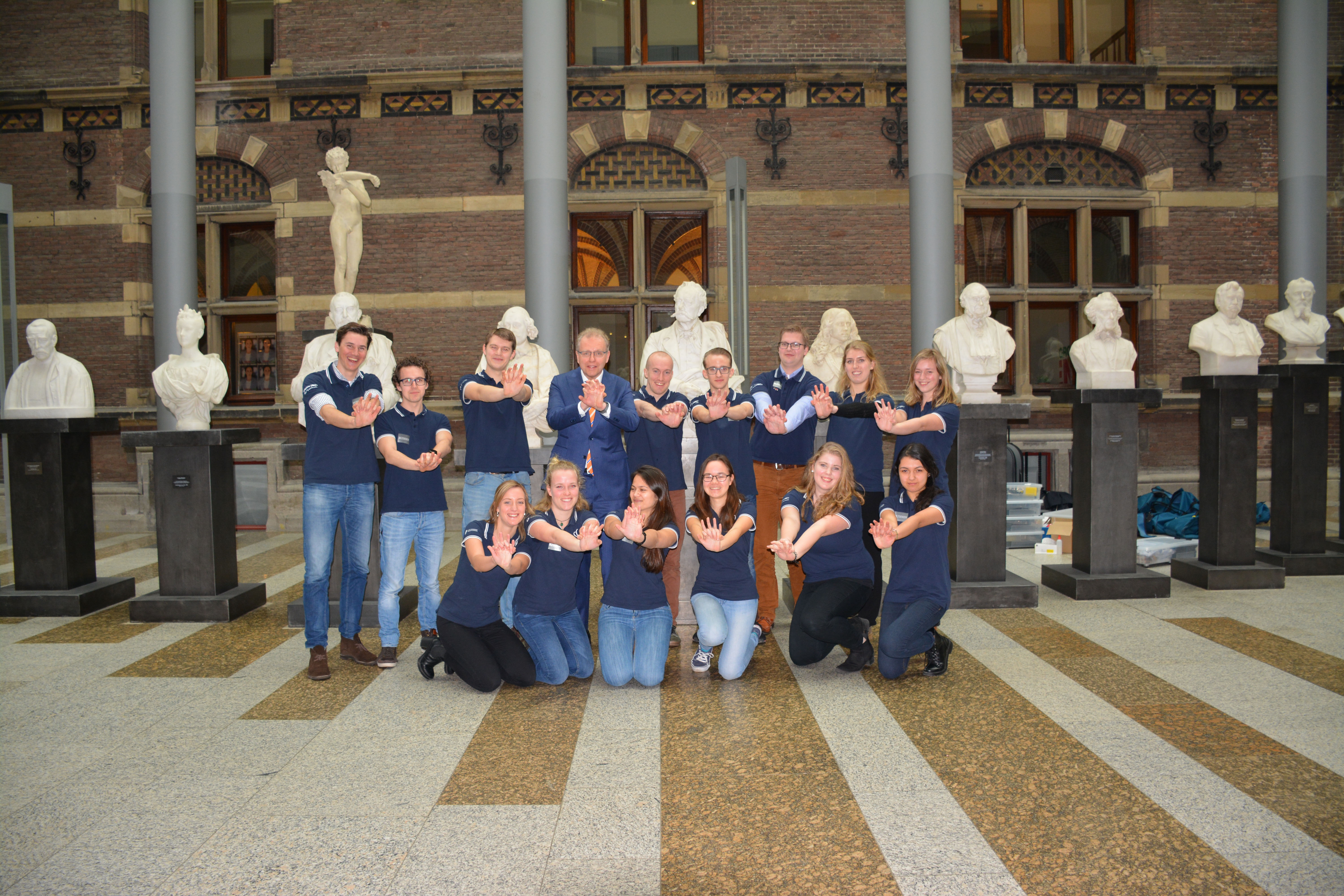
Also read
-
PhD research shows impact of aggression on staff and patients in forensic care
Nienke Verstegen, researcher at De Forensische Zorgspecialisten, has conducted research on aggression within forensic care and its impact on patients and staff. On July 6, 2023, she will receive her PhD from Maastricht University with her dissertation 'Hurt people hurt people. Characteristics and...
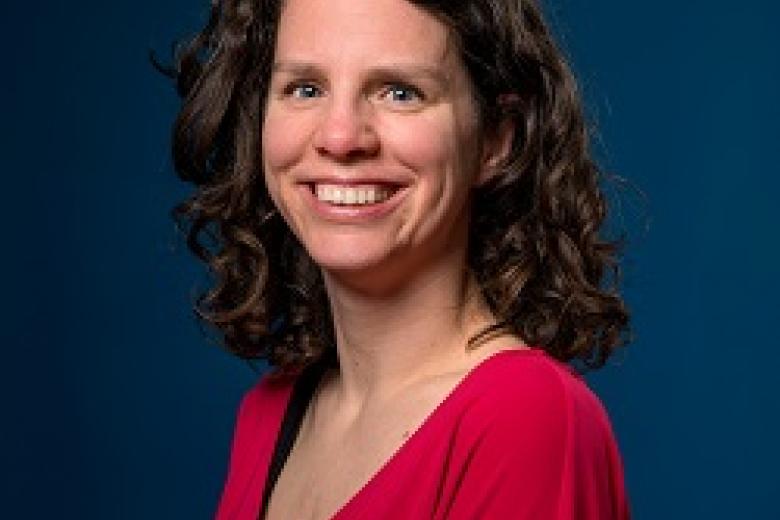
-
No evidence of brain damage caused by severe COVID-19
Patients admitted to hospital due to a severe COVID-19 infection exhibit no evidence of brain damage caused by the disease. This is the conclusion of an extensive study led by Maastricht University.

-
Cold shivers?
Due to the Western lifestyle with a high fat diet combined with little exercise, more and more people in the Netherlands are overweight or even obese. This causes an increased risk of type II diabetes. What can be done about this besides a healthier lifestyle? The answer comes from an unexpected...
